GOP voices
Contact us by email at fund4thepanamanews@gmail.com
These links are interactive — click on the boxes
Contact us by email at fund4thepanamanews@gmail.com
These links are interactive — click on the boxes
Contact us by email at fund4thepanamanews@gmail.com
The outrageous scandal of the so-called VarelaLeaks once again leads me to discover how little those in political power care about the citizens.
The irrational enjoyment of the endless privileges and advantages that an administration’s monopoly over public resources has led recent governments into all kinds of abuses and over-reaches that, at the end of the road, go unpunished. Defenseless citizens must count their wounds and hide their growing discomfort for fear of reprisals.
In less than five months, the an administration elected by a minority has executed a series of moves that follow the same guidelines of the previous ones: the country is a business and they do not plan to waste an opportunity to profit instead of governing. The Cortizocracy has taken off.
To the appointments of ministers and heads of other executive dependencies (autonomous, semi-autonomous, ambassador, consul, etc.) under the prevailing ultra-presidentialism we must now add the appointment of an attorney general, plus three magistrates and six alternates on the Supreme Court. The latter, in addition to the mega absence of independence and transparency, has also seen its manipulation stripped bare in the VarelaLeaks.
The Cortizocracy has moved quickly to insert its tentacles and hijack all the organs of the state. The concentration of power is unchecked and, accompanied by the attempt to impose, without any real consultation, illusory reforms to the militarist constitution under which Panama has lived for more than 47 years.
In the absolute absence of citizen participation or consultation, the Cortizocracy must face civic inquiries about what lies ahead:
Will the professionals anointed by the executive tell us, by their works, writings, speeches and records of civic participation, about their public stands in defense of human rights, due process, democratic values and support for a constitutional rule of law?
What will we know about the state of their health? Would they undergo a psychological test? A psychiatric examination?
Would they publicly answer 25 questions asked by a citizen jury?
Would they show a family tree with their connections, if they have them, with the president, vice president, deputies or suplentes? Ministers or vice ministers? Current magistrates?
Would they show us their tax returns for the past 10 years?
Would they tell us about any stakes they hold in banks, or communications media?
Would they close their law offices?
The citizens’ bitterness about the present order will increase. Sooner rather than later it will have to be expressed. Let’s get ready!
Contact us by email at fund4thepanamanews@gmail.com
These links are interactive — click on the boxes
Do you think that Facebook’s indirect sale of political data on Americans and Britons, via Cambridge Analytica, led to national disasters?
Did you ever hear about “ethnic weapons?”
Back in the 1960s and 1970s it was at least a research topic for US war planners. But it was a major part of the European conquest of the Americas long before that. In modern times it would have its defensive as well as offensive applications.
In the Old World, people sometimes died of measles or smallpox. Usually they didn’t. In the Americas these diseases were unknown, so the natural defenses that came down through lineages of people who had survived these maladies when others died were not well distributed among the New World’s indigenous nations. The conquest involved all manner of intentional brutality and harsh enslavement, but the deadliest part of it was an accident of biology. The white men’s diseases spread through the Americas much more quickly than white people did.
Millions died, so that by the time English-speaking people started settling in North America they were encountering remnant cultures. Colonizers met nations that had been devastated by great plagues and then the social, political and cultural phenomena that generally follow upon such great calamities. It was comparable to how the Black Death ruined feudal economies, led to the abandonment of manors and towns and whole regions, undermined faith in religions and governments. It wasn’t too many steps removed – bubonic plague gave Europe the Wars of the Reformation.
The conquest of the Americas took a long time, and in the course of it there was some intentional use of ethnic weapons. Conquered nations were herded into reservations and given blankets that had been contaminated with pathogens that caused smallpox or other diseases to which those captive people had not resistance. The legend was surely more widespread than the practice, but it did happen.
In World War II, diseases allowed to spread through concentration camps were also used as form of warfare and genocide.
Now we have Google, one of the ubiquitous information systems monopolies, hired by giant health care company which seeks to have its patients’ health information stored on an Internet cloud and quickly searchable and retrievable and available for artificial intelligence research and development. The data for some 50 million people have fallen into the company’s possession.
Google, like Facebook, is a giant at “surveillance capitalism.” They take vast troves of information, develop ways to process and use it in specific ways, and sell this information. Like to Vladimir Putin’s troll farms, looking to influence elections in the United States, the United Kingdom and elsewhere with data obtained from Facebook.
What if some malevolent power, maybe not even a state actor, wanted a mass of medical data on a target population, to build ethnic weapons of the future? To know the common weaknesses and gaps in the immune systems of an entire nation, so as to gene-splice some new malady for military use?
‘Oh, that would never happen – we have strict rules….’ Uh huh. As if data never get stolen from big companies. As if hacker-proof defenses today will necessarily work against hackers 20 years from now. As if a traitor on the inside could never be bribed to sell information to an enemy.
The monopolistic powers and abuses of Google and Facebook have become issues in the Democratic presidential primary campaigns. From allowing tech billionaires to referee a nation’s political discourse, to monopolies that have smashed the old advertising supported news media business model, there are plenty of issues.
Do we use antitrust laws to break these companies up, and watch a generation of somewhat smaller offspring behave in much the same way? Do we just trust the bright people who oversaw the design of these useful information systems because, after all, isn’t everybody who has made that much money reasonable?
With national laws and international treaties, the world needs to ban surveillance capitalism. Would that make some huge tech companies lose so much of their economic value that they wouldn’t be able to carry on? Would that be a “taking” for the purposes of US constitutional law? In that case there might have to be compensation.
It’s good that Elizabeth Warren and Bernie Sanders have identified abusive and dangerous monopolies. But breaking Facebook and Google into smaller entities would probably not solve the existing problems, nor the ones we can at this point reasonably anticipate. Plus, notwithstanding the reprehensible business plans, Google and Facebook are useful and wonderful services.
We need to ban all sorts of corporate surveillance, beginning with the private possession of the medical information of millions of people who have never consented in any meaningful way to its commercial use.
The basic anti-monopoly solution is to leave Facebook and Google intact, but buy them with fair compensation to their owners and run them as not-for-profit public utilities. Wonderful and useful platforms and engines they may be, but nations and individuals should not have to run the many risks of their abusive private applications.

The Varela Leaks show Panamanians how we have been betrayed by so many leading characters in our nation’s life, and in so many ways. There was improper meddling with the justice system to protect the interests of major criminals, foreign and domestic. The United States intentionally put its finger on the scale to affect who owns Panama’s media — that we knew, but the leaks tell us even more about US policies and aims with respect to the information that’s available to people here. Public officials behaved in unbecoming ways.
All the makings for a titillating series of screaming headlines, as the limelight moves away from legislators holding sterile talks with their obsequious student acolytes to reduce the pressure of public protests.
But wait a minute — Varela’s communications with top officials while he was president were hacked and are now being published?
The media now screaming the loudest about it were improperly acquired by a Ricardo Martinelli using public funds?
The stolen Israeli surveillance equipment and its Pegasus spy programs, last seen in Ricardo Martinelli’s private office, has never been recovered?
Freed by a corrupt court decision, Martinelli is out on the streets threatening people?
And the business lobbies and political parties and election authorities and “Concertación” and all branches of national governments have nothing to say about the fundamental public safety, democratic freedoms and rule of law issues inherent in all this? As if constitutions are about boosting this interest and protecting that interest and denying the humanity of such-and-such part of the population, but have nothing at all to do with a nation defending itself?
#VoteNo. A constitutional discussion that fails to take into account the existence of private surveillance armies in our midst is malevolent, juvenile and disloyal to Panama. Of course whatever proposal we are given should be voted down.
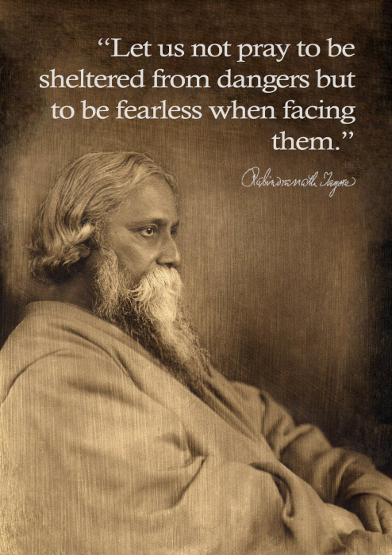
Forever is composed of nows.
Emily Dickinson
He hoped and prayed that there wasn’t an afterlife. Then he realized there was a contradiction involved here and merely hoped that there wasn’t an afterlife.
Douglas Adams
A laugh is a terrible weapon.
Kate O’Brien
Contact us by email at fund4thepanamanews@gmail.com
These links are interactive — click on the boxes
Mariposas de distintas especies pueden tener los mismos patrones de coloración de alas. Estos patrones sirven para advertir a los depredadores que son toxicas y para reconocer a una pareja de su misma especie. Pero si los patrones de las alas en cada especie evolucionaron de la misma manera, la eliminación de un gen importante debería tener el mismo efecto en ambas. Carolina Concha, junto a un equipo internacional descubrieron que la inactivación del gen WntA produce diferentes efectos en mariposas miméticas, por lo que las dos especies desarrollaron el mismo patrón a través de distintas vías.
Un equipo internacional de científicos que trabajaban con mariposas Heliconius en el Instituto Smithsonian de Investigaciones Tropicales (STRI) en Panamá se enfrentó a un misterio: ¿cómo las parejas de mariposas no relacionadas desde Perú hasta Costa Rica desarrollan casi los mismos patrones de color de ala una y otra vez? La respuesta, publicada en Current Biology, cambia para siempre la forma en que comprendemos la evolución.
“Nuestro equipo es el primero en informar que, aunque la evolución de patrones de color similares en Heliconius puede ser impulsada por fuerzas similares, como el caso de los depredadores que evitan un tipo particular de mariposa, el camino hacia ese resultado no es predecible”, comentó Carolina Concha, autora principal de la publicación y becaria postdoctoral en STRI. “Esto realmente nos sorprendió porque revela la importancia de la historia y el azar en la configuración de las rutas genéticas que conducen a la imitación del patrón de alas de mariposa”.
Los brillantes colores del ala de Heliconius indican a los depredadores que las mariposas son tóxicas. Los llamativos patrones de las alas de los machos indican a las hembras que están eligiendo la especie correcta para aparearse. De alguna manera, estas dos fuerzas, la depredación y el apareamiento, conducen a patrones de alas similares en grupos de mariposas aisladas en los valles montañosos y las laderas de los Andes. Al eliminar un solo gen llamado WntA en 12 especies distintas y sus variantes, los biólogos moleculares del equipo pudieron determinar si un par de mariposas con los mismos patrones de alas estaban usando las mismas rutas genéticas para colorear y modelar sus alas. No lo hacían.
“Imagina que a dos equipos que reciben los mismos bloques de Lego se les pide que construyan el mismo dispositivo”, comentó Arnaud Martin, coautor y jefe del Laboratorio Butterfly Evo-Devo de la Universidad George Washington. “Cada equipo realiza la tarea de manera diferente, pero al final, el resultado es el mismo. Las mariposas enfrentan desafíos mucho más serios: construyen estructuras tapizadas de escamas (las alas) que son esenciales para su supervivencia y capacidad de reproducción”.
Las preguntas sobre el mimetismo de las mariposas han intrigado a los biólogos durante décadas, pero la tecnología para eliminar selectivamente un solo gen en un organismo vivo no existió hasta hace unos cinco años. Ahora, con la edición genómica usando CRISPR/Cas9, cada vez es más fácil jugar con el código genético. Cuando los investigadores eliminan un gen de diseño principal, como WntA, cambia la estructura microscópica y el color de las escamas que componen el ala de la mariposa y, como resultado, el patrón cambia.
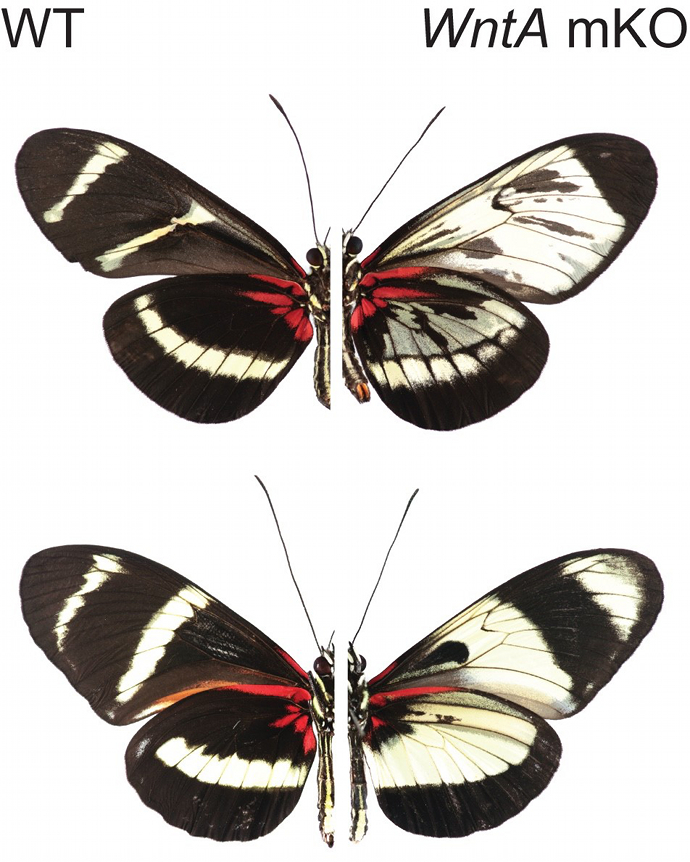
El estudio plantea una serie de interrogantes, como la forma en que WntA interactúa con otros genes para quedar con un área que es roja o negra. Ahora el equipo quiere saber cómo se controla el gen WntA.
“Aprendimos que si bien un gen de desarrollo (WntA) puede tener un papel amplio en la evolución de la mayoría de los patrones de color del ala de la mariposa, su uso preciso para colorear esa ala no es completamente predecible”, comentó Riccardo Papa, coautor y profesor de Universidad de Puerto Rico. “Distintas especies con patrones idénticos de color de ala, como las mariposas miméticas, pueden evolucionar usando diferentes estrategias moleculares. ¡Imagina las mismas notas tocadas en diferentes instrumentos!
“Algunas personas dicen que Panamá era una palabra indígena que significa abundancia de mariposas”, comentó Owen McMillan, científico y jefe del laboratorio de genómica ecológica de STRI. “Los laboratorios Smithsonian en Gamboa son sin duda uno de los mejores lugares del mundo para comprender cómo evolucionan las mariposas, y esperamos que investigadores inspirados se unan a nosotros mientras continuamos haciendo interrogantes sobre estas criaturas increíblemente hermosas”.
Veinticinco autores del Instituto Smithsonian de Investigaciones Tropicales, la Universidad de Oxford, la Universidad George Washington, la Universidad Estatal de Mississippi, la Universidad de Cambridge, la Universidad de Puerto Rico, la Universidad Estadual de Campinas, la Universidad del Rosario, la Universidad de Chicago y la Universidad Estatal de Carolina del Norte. contribuido a este estudio.
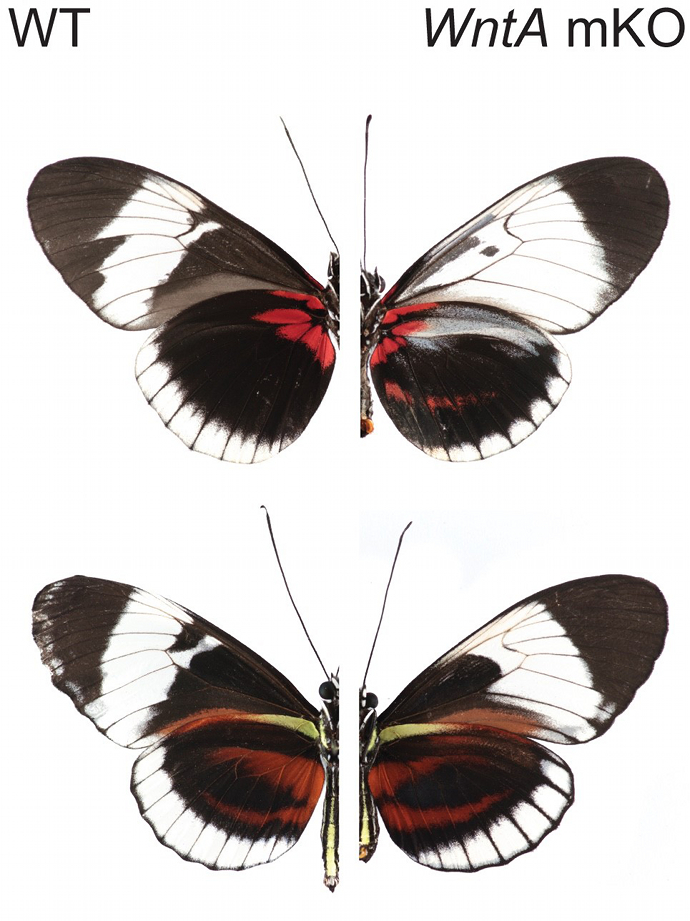
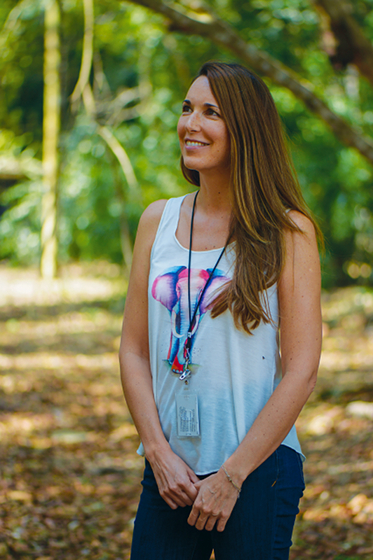
Referencia: Concha, C., Wallbank, R.W.R., Hanly, J. et al. 2019. Interplay between developmental flexibility and determinism in the evolution of mimetic Heliconius wing patterns. Current Biology. https://www.cell.com/current-biology/fulltext/S0960-9822(19)31316-8
A new branch of Democrats Abroad has been started in the Playa Coronado area with the goal of helping US Citizens in Panama understand how to vote, helping them get registered, and ensure they are not purged from voting rolls. Democrats Abroad is the Democratic Party arm for the millions of Americans living outside the borders of the country. But the group is non-partisan with respect to voter registration.
US Citizens have the right to vote in federal elections no matter where they are currently living. The US State Department estimates more than nine million Americans are residing outside the country in 2019 — a larger population than almost 40 states. In 2018, about 221,000 US citizens abroad actually cast a ballot.
The State Department estimates about 25,000 Americans are living in Panama currently, and Democrats Abroad has local groups in Boquete, el Valle, and Panama City as well as the Playa Coronado area. DA-Panama has plans for several “Get Out the Vote” events in the coming months starting in January and will participate in the Democratic Global Presidential Primary that takes place from March 3 through 10, 2020. Look for announcements here about dates and locations.
“We’ve had about 25 Democrats at each of our first two local gatherings,” said Kim Antonsen, DA-Panama Chair. “The diverse opinions, enthusiasm and knowledge among them make for a fun and energetic event every time.”
If you’d like to join, contact PlayaCoronadoDems@gmail.com for more information about local events, or join DemocratsAbroad online. Kim added, “Your voice – and your vote – matter!”
To register to vote from abroad – generally in the last place in the USA where you lived – go to Vote From Abroad here. People who are dual US and Panamanian citizens can vote in US elections as well, and for those who are more comfortable in Spanish, the Vote From Abroad website now has a Spanish section.
Contact us by email at fund4thepanamanews@gmail.com
These links are interactive — click on the boxes
“If you support secession, we will support secession in your house. And if you support negative groups, we will support negative groups in your territory.” Thus spake Nasser Bourita, foreign minister of the Kingdom of Morocco, about King Mohamed VI’s policy toward Panama.
What’s the problem? The Spanish dictator Francisco Franco may be long dead and just reburied as the Spanish government ordered his bones’ removal from public property at the Valley of the Fallen cemetery and shrine. A deathbed folly of his lives on in the Western Sahara, a mineral rich but sparsely populated Spanish colony that he purported to devolve to Morocco and Mauritania, the northern two-thirds to the former, the rest to the latter. This, in response to and in lieu of an independence referendum that the United Nations had demanded. Since 1965 the UN has repeatedly called for such a vote, and authorities in Spain, then in Morocco, have always found ways to avoid such an election.
At the time, Panama was in the process of ending a colonial situation here, with the non-aligned countries that had mostly been colonies supporting the efforts of General Omar Torrijos’s government to devolve what was the US enclave of the Canal Zone to Panama. As it had in 1821, when it threw it threw in its lot with Simón Bolívar against the Spanish Crown, Panama took the anti-colonial side. In 1978 the Torrijos dictatorship recognize the government set up by the Saharawis’ anti-colonial movement, the POLISARIO Front, the Democratic Saharawi Arab Republic (RASD).
Recognition of the Western Sahara as an independent country has been the default position of Panamanian diplomacy since then, with the exception of a year and a half lapse at the end of the Martinelli years and the beginning of the Varela presidency. Nito Cortizo’s PRD administration has reaffirmed Panamanian support for the independence of the Western Sahara, which makes us one of 83 countries taking that stand but one of only a few in Latin America. The king of Morocco is quite upset about this.
The stakes are minerals and fisheries, mainly a large phosphate deposit that supplies chemical agriculture, munitions and other industries. Spain, the United States, Israel and France are all in one way or another beneficiaries of the resources grab. The people who live in the Western Sahara, and especially those who once did but have been expelled, generally derive negative economic yields from the arrangement.
The Saharawi independence war is in a long-running ceasefire, which came about when Morocco built a long wall defended by some 180,000 soldiers, minefields and many sorts of electronic observation devices. The phosphate mine and a conveyor belt that goes to the Atlantic Ocean are guarded by Morocco. On that side of the wall the gold, lead, uranium and other valuable resources are also to be found. Beyond the wall, Saharawis control. There are a few places on either side of the long wall where the Moroccans or the Saharawis have gained footholds. Much of the Saharawi population has been driven into exile, particularly in a huge refugee camp near Tindouf in the west of Algeria but also with substantial communities in Spain and France. One of the few things that keeps the Saharawi cause in the world’s eye is the activity of pro-independence Saharawi women’s groups in Spain and France.
A the time of Morocco’s takeover of the Western Sahara, there were an estimated 800,000 to one million Saharawis. Morocco has driven away many of these, and moved more than 300,000 Moroccans into the area. One of the dodges by which the Moroccan royal family has for decades avoided a referendum is its insistence that Saharawis in exile can’t vote and Moroccans transplanted to the Western Sahara can.
Soon after Spain’s devolution of the Western Sahara to Morocco and Mauritania, POLISARIO forces knocked the Mauritanians out of the war. But Morocco then moved in to take over the claims that Mauritania renounced in favor of the Saharawis.
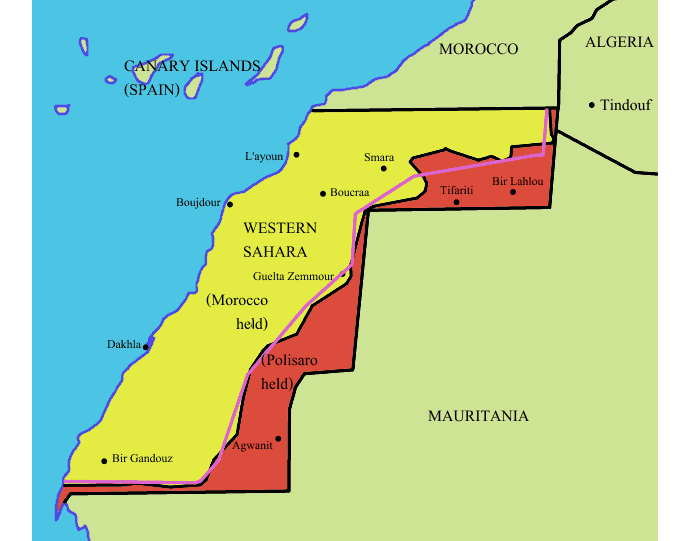
So what next?
Morocco has threatened to shut down the Panamanian embassy in Rabat, which might actually dovetail nicely into Nito Cortizo’s government austerity plans. On the other hand, it might deprive Cortizo of an option to send off one of his party’s more annoying politicians on a diplomatic mission. (Perhaps to make up the loss, and notwithstanding their allegedly inferior potassium, Panama could open an embassy in Uzbekistan for that purpose.)
Support for subversion here? In the grand scheme of things Morocco has relatively few resources of its own and no appreciable ideological following for this purpose. But the king is a rich man — Forbes magazine estimates the king’s fortune at around $5.7 billion, making him Africa’s fifth wealthiest man. Also, Mohamed VI’s kingdom could become a conduit for funding by ultra-right Christian fanatic networks, countries annoyed about Panama’s relations with China or so on to play either national Panamanian politics or to aggravate the ethnic divisions that we have here but which politicians will rarely admit. Little groups of racist xenophobes who wave hangman’s nooses in front of church doors could suddenly find a new source of funding that they would not care to admit. Pushing in the other direction, perhaps Panama’s home-gown political irritants could be excoriated or even arrested as Moroccan spies.
Contact us by email at fund4thepanamanews@gmail.com
These links are interactive — click on the boxes
The National Police have filed a criminal complaint with the Supreme Court against double-dipping Colon politician Jairo “Bolota” Salazar, who collects paychecks as both a member of the Colon city council and as a member of the national legislature. The allegations are obstructing a police officer in the performance of his duty, and later attempting to practice law by purporting to represent a man who was arrested when police moved to break up a party of Salazar’s where the entertainment included loud noise late at night and firearms being brandished.
The high court and the legislature have long had a mutual nonaggression pact, where the magistrates rarely hold a deputy to account — even if the politician kills someone — and the National Assembly routinely declines to act in the face of the most flagrant judicial corruption. But then, conduct as brazen as police allege Salazar to have indulged in goes beyond the usual.
Contact us by email at fund4thepanamanews@gmail.com
These links are interactive — click on the boxes
At a late Tuesday afternoon meeting with President Cortizo, the attorney general — “Procuradora General de la Nación” — handed in her resignation.
We may hear more from her, but such initial explanations she gave were incoherent. She was caught in hacked WhatsApp messages at conniving with former president Juan Carlos Varela to reach plea bargain deals that first of all shielded Varela himself and several of his friends from investigations about fixing overpriced public construction contracts and taking kickbacks from them, and making deals to allow Odebrecht and other companies convicted of public corruption to continue working for government agencies in Panama. She said that if anyone was to call her to account, her apparent co-conspirator, Mr. Varela would have to file the complaint. She said that “Panama needs to know the truth, but the Public Ministry must end its investigation.”
According to Panama’s constitution Porcell’s replacement is an appointment that gets made by the National Assembly. But the main powers there, PRD caucus chair Benicio Robinson and the legislature’s vice president Zulay Rodríguez, are themselves tainted but their thefts from the government’s PANDEPORTES sports institute. (Are they going to charge this reporter for criminal defamation for saying that? They took the money and refuse to account for it. Whatever some judge might be bribed or bullied to say, they stole.)
So is a legislature currentlyh engaged in a “dialogue” with their younger acolytes who are well paid political nothings on campus going to appoint a replacement with a mission to look the other way? Most likely, but also most likely the present turmoil over the constitution would be aggravated. Stay tuned.
Contact us by email at fund4thepanamanews@gmail.com
These links are interactive — click on the boxes